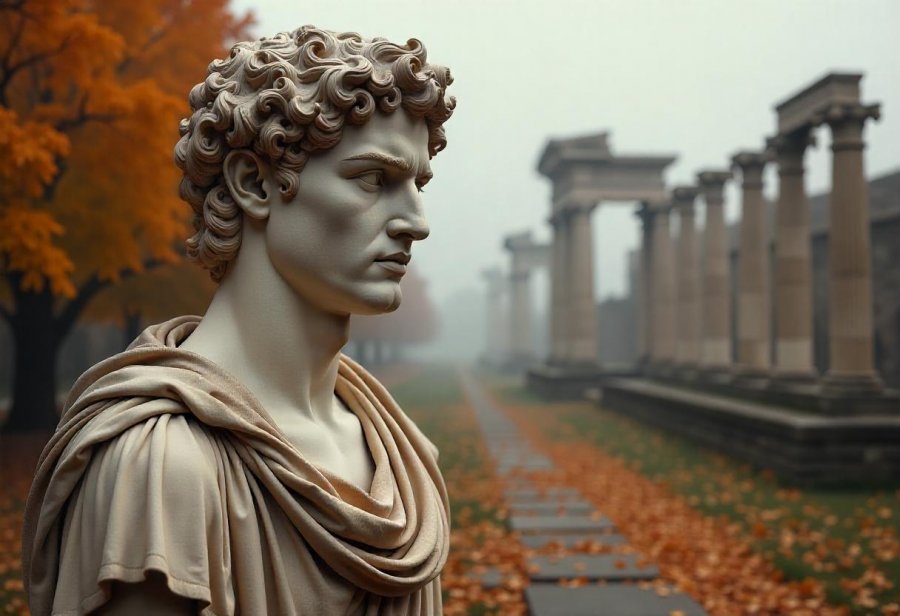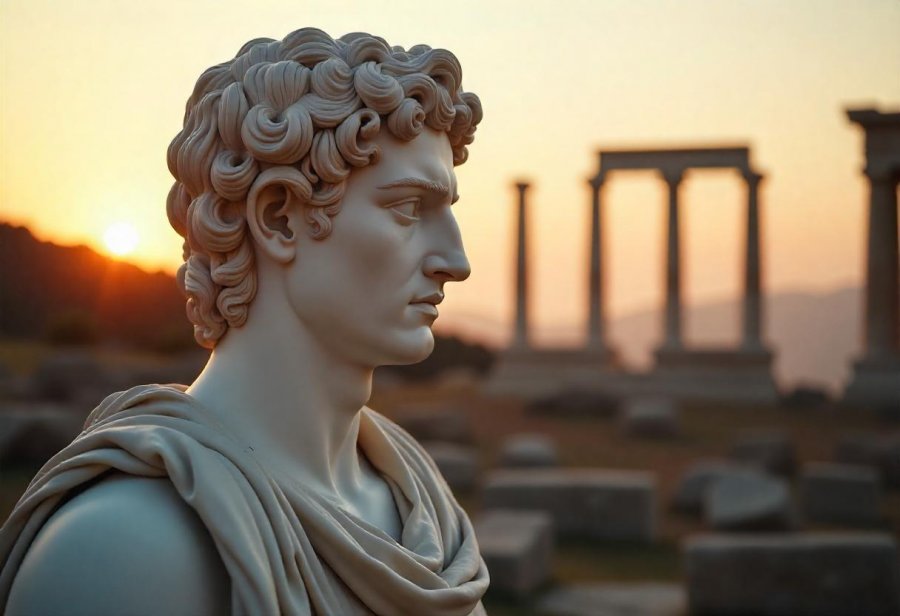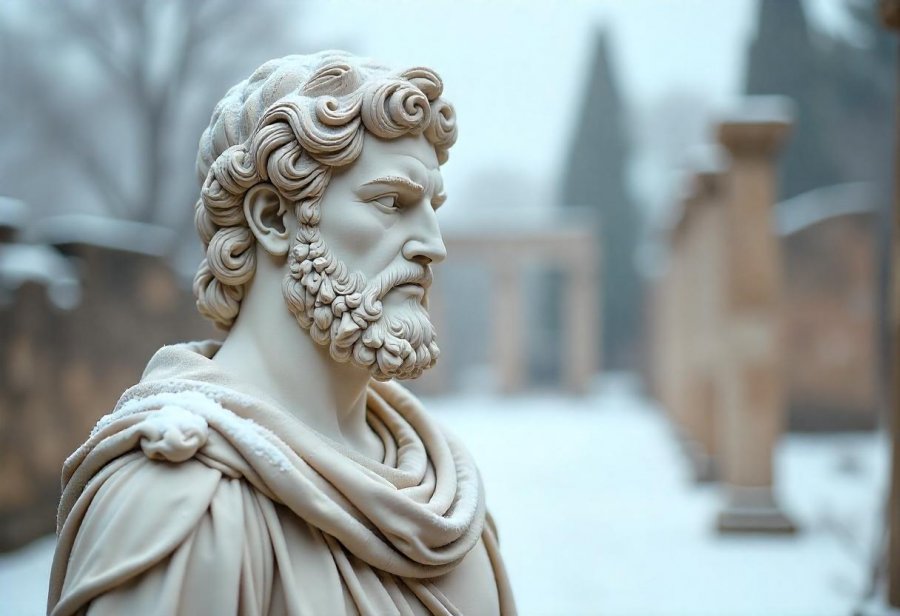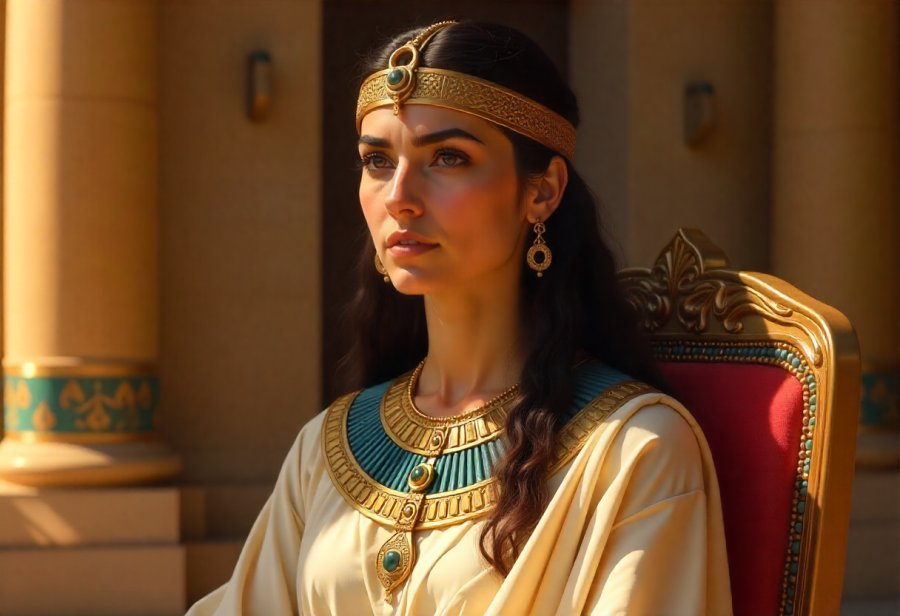Uncover the extraordinary mind of Alexander the Great—a leader whose strategic genius and relentless ambition reshaped history. From his early years immersed in philosophy and military innovation, to his mastery of adaptable tactics across diverse terrains, Alexander’s campaigns exemplify boldness and ingenuity. His ability to inspire loyalty, integrate cultural traditions, and manipulate perceptions made him unstoppable. Yet, what truly sets him apart is his vision of unity through diversity and his fearless risk-taking that continually pushed boundaries. Could today’s leaders learn from his timeless lessons of flexibility, cultural sensitivity, and environmental mastery? As the world evolves, Alexander’s legacy serves as a compelling blueprint for navigating complexity, embracing change, and transforming obstacles into opportunities. His life challenges us to rethink leadership—combining daring innovation with resilience—suggesting that greatness lies at the intersection of vision and adaptability in an unpredictable future.

Unveiling the Legend: Alexander’s Charisma, Strategy, and Cultural Vision
Alexander the Great’s emergence as a legendary figure is rooted in a unique combination of personal charisma, strategic brilliance, and an insatiable drive for conquest. His story is not merely one of brute force but also of profound insight into leadership, human motivation, and cultural influence. Born in 356 BCE in Pella, the Macedonian capital, Alexander inherited a throne that was already on the cusp of transformation, thanks in part to his father, King Philip II. Philip’s military reforms and diplomatic innovations laid a crucial foundation, but it was Alexander’s own qualities—his intelligence, ambition, and tactical ingenuity—that elevated Macedonia’s ambitions beyond the Greek world and into the vast territories of Persia, Egypt, and India.
From a young age, Alexander’s life was shaped by an environment that fostered both privilege and discipline. His early education under Aristotle infused him with a love for philosophy, science, and the arts, providing him with a broad worldview that extended beyond warfare. These lessons balanced his martial training with a deep appreciation for Greek culture and ideas, cultivating a sense of cultural synthesis that would underpin his empire-building. Witnessing his father’s innovations—such as the development of the Macedonian phalanx and advanced siege techniques—Alexander internalized the importance of innovation, boldness, and strategic risk-taking. These traits became hallmarks of his leadership style, enabling him to adapt and excel on the battlefield and in governance alike.
His formative years also exposed him to the realities of leadership through participation in military campaigns, court politics, and close observation of his father’s successes. Alexander’s charisma and ability to inspire loyalty emerged early, as he demonstrated a natural talent for rallying troops through personal courage and shared purpose. These experiences helped forge a resilient and confident leader, one who believed in his destiny and was driven by a relentless pursuit of greatness. His early exposure to diverse cultures during his father’s campaigns further broadened his perspective, fostering adaptability and curiosity about different peoples and traditions—traits that would prove vital when he faced unfamiliar territories and complex social landscapes during his conquests.
Context is everything here: Alexander’s ascension was not merely a matter of inherited power but a synthesis of intellectual cultivation, practical experience, and cultural engagement. This well-rounded foundation prepared him to lead daring campaigns that combined tactical innovation with a nuanced understanding of human nature and environment. His early life was a crucible in which his strategic mindset was forged—one that prioritized boldness, improvisation, and understanding the psychology of his enemies and followers alike. It is precisely this blend of qualities that allowed Alexander to transcend the limitations of conventional warfare and pioneer new methods of conquest, shaping the course of history and leaving a legacy that continues to influence leadership models to this day.
From Privilege to Power: How Education and Experience Forged Alexander’s Leadership
Alexander’s ascent to legendary stature was no accident but rather the result of a meticulously cultivated environment that fused privilege, rigorous education, and practical experience. Born in 356 BCE in Pella, the Macedonian capital, he was immersed from an early age in a world of political intrigue, military innovation, and cultural exchange. Witnessing firsthand the reforms initiated by his father, King Philip II, Alexander internalized the importance of strategic thinking and adaptability. Philip’s development of the Macedonian phalanx and inventive siege techniques provided a tactical blueprint that Alexander would later refine and expand upon, demonstrating that success often hinged on innovation and flexibility rather than mere brute strength.
A defining element of Alexander’s early development was his education under Aristotle, which went far beyond traditional classroom instruction. This mentorship infused him with a deep appreciation for philosophy, sciences, and the arts, shaping a worldview that balanced martial ambition with cultural curiosity. Aristotle emphasized virtues such as reason, observation, and strategic insight—qualities that Alexander would later deploy both on the battlefield and in governance. These lessons fostered a sense of curiosity about the world that extended beyond conquest, inspiring him to see empire-building as a process of cultural synthesis and mutual enrichment rather than simple domination.
In addition to intellectual cultivation, Alexander’s upbringing was marked by early leadership experiences that laid the groundwork for resilience and confidence. From a young age, he participated in military exercises, accompanied his father on campaigns, and demonstrated a natural charisma that rallied those around him. These formative encounters with the realities of command—balancing discipline with daring—helped forge a leader who believed deeply in his destiny. His personal courage and ability to inspire loyalty became evident early, as he led by example, sharing hardships and displaying unwavering resolve even in the face of daunting challenges. These traits would become central to his leadership style throughout his career.
Exposure to diverse cultures and political systems during his father’s campaigns further broadened Alexander’s perspective. Encounters with different peoples, terrains, and customs in the Balkans, Persia, Egypt, and beyond nurtured a sense of adaptability and curiosity. These experiences underscored that effective empire-building required more than military might; it demanded understanding, respect, and the ability to navigate complex social landscapes. Such cultural openness would prove invaluable as he moved into unfamiliar territories, adopting local customs, forging alliances, and integrating diverse traditions into his expanding empire. These early contacts with the wider world instilled a nuanced appreciation of the complexities involved in governing a multi-ethnic domain.
This synthesis of privilege, education, and real-world exposure created a fertile foundation for Alexander’s future conquests. His upbringing was not merely about inheriting power but about cultivating a mindset that combined strategic innovation with cultural sensitivity. The lessons learned in these formative years—embracing change, daring to innovate, and respecting diversity—shaped his approach to leadership. They also fueled his relentless ambition, setting him apart from many other figures of his time. By blending intellectual curiosity with practical experience, Alexander was prepared to face the daunting challenges of empire-building, transforming theoretical knowledge into dynamic, effective action. This comprehensive foundation ultimately forged a leader capable of not only conquering vast territories but also of reshaping the very nature of leadership itself.

Mastering the Battlefield: The Innovative Tactics that Defined Alexander’s Conquests
Alexander’s campaigns exemplify a masterclass in tactical innovation and adaptability, qualities that distinguish him from many of his contemporaries. One of the clearest demonstrations of his strategic brilliance is the Battle of Gaugamela in 331 BCE. Confronted with a vastly larger Persian army, Alexander employed a daring feigned retreat, deliberately luring the enemy into a vulnerable position. This risky maneuver was rooted in a keen understanding of enemy psychology and terrain, showcasing his ability to manipulate perceptions on the battlefield. As the Persian forces pressed forward, convinced they had the upper hand, Alexander’s cavalry struck decisively from the flank, shattering the Persian lines and turning potential disaster into a decisive victory. This battle encapsulates his talent for reading opponents’ overconfidence and exploiting chaos with surgical precision.
Beyond this iconic victory, Alexander’s mastery of combined arms tactics became a hallmark of his military success. His use of the Companion Cavalry, a highly mobile and well-trained force, allowed him to execute rapid flanking maneuvers and pursue retreating enemies relentlessly. Unlike armies that depended solely on brute force, Alexander understood that mobility and precise timing could decisively influence outcomes. His cavalry often outflanked larger, more cumbersome armies, creating openings for his infantry to break through enemy lines or to chase down fleeing foes. The seamless coordination between cavalry and infantry demonstrated a nuanced grasp of battlefield dynamics, allowing him to adapt swiftly to changing circumstances and outmaneuver opponents who relied on static formations.
Alexander’s campaigns spanned diverse terrains and opponents, requiring him to continually adjust his tactics. In Egypt, he capitalized on natural geography, establishing the city of Alexandria as a strategic hub while using the desert’s natural barriers to his advantage. Facing the Indian war elephants—formidable and unfamiliar adversaries—he modified his formations and employed lighter troops to counter their impact. In these varied environments, Alexander’s willingness to learn and adapt proved crucial. His tactics evolved from traditional phalanx assaults to more nuanced approaches that considered terrain, weather, and the psychology of his enemies. This flexibility prevented stagnation and kept his army a step ahead, even in unfamiliar or hostile territory.
The Siege of Tyre offers a prime example of Alexander’s inventive approach to warfare. Facing a fortified island city, he orchestrated an ambitious engineering feat by constructing a massive causeway, effectively turning the natural obstacle into a bridge for his army to assault the city’s walls. This combination of engineering ingenuity and military planning exemplifies his capacity to innovate under pressure. Similarly, in India, when confronted with monsoon rains and unfamiliar combat tactics, Alexander swiftly reconfigured his formations and employed new siege techniques. These instances highlight his ability to think creatively and to leverage environmental factors—terrain, weather, and natural resources—as allies rather than obstacles.
Psychological warfare played a vital role in Alexander’s strategy. At Gaugamela, he deliberately created chaos behind his lines by deploying a small force to feign disorder, convincing the Persians they could break through. When the enemy committed their reserves to exploit this perceived weakness, Alexander’s main force rallied for a decisive counterattack. This manipulation of enemy perception often proved as effective as physical combat, boosting troop morale and unsettling foes. His leadership inspired confidence and a sense of inevitability among his troops, whose belief in his daring tactics often translated into unwavering loyalty and fierce fighting spirit, even in the face of daunting odds.
Environmental mastery was another cornerstone of his campaigns. In Persia, Alexander turned mountain passes and desert landscapes into strategic advantages, choosing routes that favored his mobility while constraining enemy options. His crossing of the Hindukush mountains, despite the rugged terrain and harsh weather, exemplifies his willingness to risk and adapt. When faced with India’s monsoons and the formidable presence of war elephants, he adjusted supply lines and tactics, deploying lighter units and developing new siege methods. These environmental considerations underscore the importance he placed on geography—not merely as a backdrop but as a tool to shape the outcome of battles and campaigns.
In every campaign, Alexander demonstrated a relentless pursuit of innovation and a refusal to be bound by convention. Whether executing a daring cavalry charge at Gaugamela or engineering complex siege works in Tyre, he approached warfare as a dynamic puzzle—one that demanded continuous learning and creative problem-solving. His willingness to experiment with unconventional tactics, combined with an acute awareness of psychological and environmental factors, made him a formidable strategist whose influence extended well beyond his own time. His campaigns were not just about victory but about fundamentally reshaping the art of warfare—blending boldness with ingenuity in a way that few have matched, leaving a legacy of adaptive leadership that still resonates today.
This innovative approach to warfare extended beyond battlefield tactics, influencing military strategy for centuries. For a deeper understanding of his revolutionary tactics, exploring how Alexander the Great mastered the art of leadership can provide valuable insights. You can learn more about his strategic mastery at Alexander the Great's Leadership and Tactics.
Timeless Leadership Lessons: Embracing Charisma, Adaptability, and Cultural Sensitivity
Alexander’s leadership offers timeless lessons that resonate profoundly in today’s complex world. At its core lies the power of authentic charisma and leading by example. Unlike reliance solely on authority or hierarchical commands, Alexander demonstrated that genuine connection—sharing hardships, inspiring trust, and embodying personal courage—creates bonds that motivate followers to perform beyond expectations. Modern leaders who prioritize transparency and emotional engagement often cultivate resilience and unwavering commitment, much like Alexander’s army did, driven by a shared belief in his vision and confidence in his resolve.
Flexibility and adaptability form the bedrock of his success. Alexander’s ability to swiftly modify tactics in response to unforeseen circumstances exemplifies a leadership style rooted in embracing change rather than resisting it. In today’s volatile environment, this trait is indispensable. Leaders must foster a mindset of continuous learning—viewing change as an opportunity for growth—and recognize that rigid plans often falter amid unpredictability. By cultivating agility, leaders can navigate turbulent waters with confidence, turning challenges into avenues for innovation and progress.
Discipline and unwavering focus underpin Alexander’s monumental achievements. Despite his ambitious goals, he maintained rigorous standards for himself and his troops, demanding loyalty, meticulous planning, and disciplined execution. His relentless pursuit of an empire spanning diverse cultures reveals that clarity of purpose and steadfastness sustain momentum through adversity. Leaders who set high standards and uphold a disciplined ethic are more likely to translate grand visions into tangible realities, ensuring that perseverance and purpose drive their endeavors forward.
Cultural sensitivity and the capacity to integrate diverse traditions emerged as hallmarks of Alexander’s leadership. His willingness to adopt local customs, marry into native elites, and respect different ways of life fostered loyalty and created a shared identity among disparate peoples. Such an approach was not merely strategic but rooted in a genuine appreciation for diversity’s strength. Today’s globalized landscape demands similar cultural intelligence—leaders who understand, respect, and incorporate varied perspectives can build resilient alliances and reduce resistance, echoing Alexander’s legacy of creating unity amid diversity.
Strategic risk-taking paired with calculated daring defined Alexander’s campaigns. His willingness to lead from the front, challenge conventions, and push beyond comfort zones exemplifies transformational leadership. While caution has its place, history suggests that boldness—when paired with thoughtful risk management—can unlock extraordinary breakthroughs. Modern leaders who balance daring with strategic insight emulate this spirit, transforming ambitious visions into reality even when the path is uncertain. Alexander’s life underscores that true influence often resides at the intersection of vision and resilience.
The art of psychological warfare and perception management played a vital role in his victories. Alexander understood that shaping enemy morale and perceptions could be as decisive as battlefield tactics. At Gaugamela, he deliberately created chaos behind his lines to mislead and unsettle his foes, then rallied his troops for a decisive counterattack. This manipulation of perceptions often overwhelmed opponents more than sheer force. Leaders today, whether in diplomacy, business, or military strategy, can learn from this—perception is a powerful tool that, when wielded wisely, can tilt the scales of success in their favor.
Environmental mastery was a recurring theme in Alexander’s campaigns. He turned geography into an ally—crossing mountain passes, deserts, and rivers with precision, and exploiting terrain to his advantage. His daring passage through the Hindukush and adaptation to Indian monsoons exemplify an environmental awareness that was integral to victory. Modern leaders must similarly recognize that external factors—market conditions, technological landscapes, geopolitical climates—are assets to be harnessed. Success depends on their ability to read, adapt, and leverage these factors, transforming obstacles into strategic advantages in a rapidly changing world.

Future Horizons: How Alexander’s Strategies Will Inspire Next-Generation Empire Builders
The strategies that propelled Alexander the Great into legend continue to serve as a blueprint for leadership and empire building, even in today’s interconnected and rapidly evolving world. His emphasis on agility, cultural diplomacy, and psychological insight remains profoundly relevant across domains—from geopolitics to corporate leadership and military innovation. Future leaders are likely to draw inspiration from his swift decision-making, daring risk-taking, and ability to foster loyalty through charismatic leadership. As the global landscape becomes more complex, these core principles—adaptability, cultural sensitivity, and perceptive mastery—will only grow in importance. Those who navigate these challenges with flexibility and vision will find their efforts echoing Alexander’s legacy of transforming obstacles into opportunities.
In today’s era of technological acceleration, Alexander’s focus on strategic agility takes on new dimensions. The ability to pivot quickly in response to emerging threats, opportunities, or unforeseen circumstances is no longer optional but essential. Leaders now harness data analytics, real-time intelligence, and simulation tools to anticipate scenarios and adapt tactics instantaneously. This mirrors Alexander’s talent for improvisation and terrain exploitation, reinforcing that success depends on a leader’s capacity to learn, evolve, and act decisively amid chaos. Embracing change as a strategic asset—rather than a risk—is fundamental. Organizations and states that cultivate this mindset will be better equipped to remain resilient and competitive in an unpredictable future.
Cultural intelligence, central to Alexander’s empire-building, has become more vital than ever. His practice of blending Greek and Eastern traditions helped forge loyalty and foster a shared purpose among diverse populations. Today’s interconnected world demands a similar capacity for understanding, respecting, and integrating different cultural perspectives. Leaders who approach diversity as a strength rather than a challenge can build resilient coalitions, reduce resistance, and foster sustainable cooperation. Emulating Alexander’s strategy of genuine cultural integration—based on respect and mutual enrichment—can lead to more enduring alliances and a more harmonious global order.
Technological innovation now complements age-old principles of strategic flexibility. While Alexander relied on terrain mastery, engineering, and psychological warfare, modern challenges involve digital landscapes, cyber operations, and information dominance. Leaders must develop new forms of agility—adapting organizational structures, communication channels, and tactics to the digital environment. The core lesson remains: relentless innovation, paired with a willingness to experiment and accept uncertainty, underpins sustained success. Just as Alexander redefined warfare in his time, future strategists will need to reimagine it within cyberspace and information networks. The ability to stay ahead of technological shifts will determine who can lead in this new era.
The enduring appeal of Alexander’s example lies in his relentless pursuit of a grand vision paired with an extraordinary ability to adapt at every turn. The most effective future empire builders—whether in politics, business, or the military—must recognize that bold ambition needs to be paired with strategic flexibility. The leaders who succeed will be those capable of balancing daring initiatives with nuanced environmental awareness, continuously refining their strategies in response to new challenges. Alexander’s life reminds us that influence and legacy are forged not merely through static plans but through a dynamic interplay of vision, resilience, and inventive thinking—traits that remain vital today.
Beyond strategic and tactical lessons, Alexander’s life underscores the importance of resilience and a growth mindset. Leaders of the future will need to foster environments where experimentation and even failure are viewed as integral to progress. His willingness to take calculated risks and learn from setbacks offers a blueprint for cultivating adaptability. Embracing this mindset—where setbacks become valuable lessons—can help organizations and individuals navigate turbulence and seize opportunities in the face of uncertainty. The key is to see challenges not as insurmountable obstacles but as catalysts for innovation and growth, much like Alexander’s own relentless pursuit of new horizons.
Cultural integration and psychological mastery, central to Alexander’s success, are increasingly recognized as vital leadership qualities. Building bridges across divides—whether cultural, ideological, or organizational—requires more than superficial tolerance. It demands genuine respect, curiosity, and a willingness to learn from others’ perspectives. Leaders who can shape perceptions, foster trust, and motivate diverse teams will be the ones who thrive amid complexity. Alexander demonstrated that understanding and respecting differences can transform potential conflicts into sources of strength, creating a unified vision that transcends individual identities. This approach is essential for constructing resilient, adaptable networks capable of weathering geopolitical and societal shifts.
In essence, Alexander’s life offers a timeless lesson: true greatness resides at the intersection of vision, resilience, and adaptability. As new frontiers—digital, geopolitical, or cultural—continue to emerge, leaders must embrace change and uncertainty as opportunities rather than threats. The ability to learn from history, adapt strategies dynamically, and build genuine bridges across differences will determine who rises to meet future challenges. Alexander’s legacy reminds us that leadership is an ongoing process—one that demands continuous evolution, inventive thinking, and a fearless pursuit of a transformative vision. Those who master these qualities will not only shape their own destinies but also influence the course of history for generations to come.









